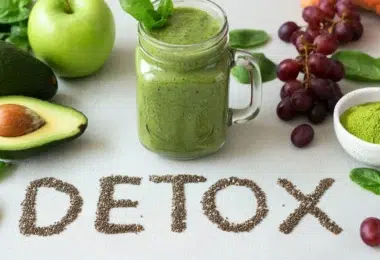
Kratom and Yoga: A Holistic Approach to Wellness
Introduction: The Synergy of Kratom and Yoga In today’s fast-paced world, people are increasingly turning...
View PostHave you ever wondered why you can’t buy Kratom locally at Walgreens? The answer is simple and complex at the same time. On the simple side, you won’t find kratom capsules at Walgreens – or any other form of Mitragyna speciosa – because their corporate leadership hasn’t approved it. But there’s also a lot more behind this decision than you might expect.
Kratom is legal from a federal standpoint. It’s also legal in the vast majority of states, cities, and counties nationwide. In spite of this legality, many credit card processing companies will not honor transactions for this natural substance.
This transaction denial owes to kratom’s negative reputation among processors, who view it as a high-risk item. This high-risk reputation is the unfortunate consequence of chargebacks to disappointed customers, but it is also a matter of reputation.
Credit card processors are suspicious of kratom vendors and the products they sell. Such companies recognize the kratom industry as a largely unregulated field, one that has taken on some dirty habits. Brands have been exposed for using synthetic additives, unsafe milling equipment, and more.
In the last four years alone, the world has watched as federal agencies investigated a multistate outbreak of Salmonella infections, which was traced back to select kratom brands. Such incidents have only made it more difficult for vendors to obtain access to a reasonably priced credit card processor.
Fortunately for those whose customers depend on credit card access, a number of high-risk credit card processors exist, but vendors pay a premium for their services. Processing fees, account overages, per gateway fees, item fees, scrub fees, and other fees that would make your head spin all apply.
This puts merchants in the untenable position of losing money on kratom sales, while sustaining their already-volatile profit margins. Kratom vendors can end up spending a significant amount of money opening a merchant processing account, but they can also lose that account at the drop of a hat.
Kratom vendors who accept credit cards invariably share the same unfortunate experience. Everything’s good for a bit, then the credit card processor shuts them down for selling kratom. This prohibits the vendor from accepting additional card payments. Collected monies are frozen by the processor and the vendor ends up eating the cost.
This is difficult enough when it happens to one business, so imagine the financial toll if every Walgreens nationwide suddenly lost the ability to accept credit cards? Studies show that 76 percent of Americans use debit or credit cards for at least some of their purchases. Meanwhile, only 24 percent carry enough cash for everything they wish to buy.
Walgreens has established a lasting relationship with Synchrony, one of the world’s leading financial institutions. Synchrony is more than merchant service, it’s a business partner, and it’s not one that the massive drugstore chain can afford to lose.
After years of fiscal decline, 2020 saw a significant growth in Walgreens’ receipts, with a 492.45% increase in overall net income. Profits have only climbed over the ensuing years, with the company reporting gross profit of more than 28 billion in U.S. dollars in 2021 alone.
2021 also saw the introduction of the new myWalgreens Credit Card program, which consisted of new store credit cards issued from Synchrony Bank. The evolution of Walgreens’ relationship with Synchrony goes far toward explaining why it would not want to take a risk on kratom goods.
Pushback from the FDA is another prime reason why Walgreens and other big box stores don’t carry kratom. As previously mentioned, there are no current federal laws prohibiting kratom sales. In fact, the DEA and FDA backed off on plans to ban kratom after receiving a massive backlash from consumers nationwide.
Nevertheless, eager legislators continue to push for stricter kratom regulation, while law enforcement agencies seize on any opportunity to bust those caught with large volumes of the widely legal compound. Late last year, U.S. Marshals seized $1.3 million worth of bulk kratom products Atofil, LLC, at the behest of the FDA.
Imagine how much bigger – and how much more financially devastating – such a seizure could be to a company as large as Walgreens. Image is everything at a corporate level; this is true of CVS stores, which recently rebranded as CVS Health and stopped carrying tobacco products, and it is true of chains like Walgreens.
Law enforcement seizure of a kratom shipment at a Walgreens location would cast a negative pall on a thriving family-oriented business. It would also threaten the company’s earning potential. These are just some of the mitigating factors behind Walgreens’ refusal to carry kratom powder or kratom capsules.
Another problem that places like Walgreens, Walmart, and GNC face is the possibility of being held liable for mistakes that consumers make. For example, a select number of people have died with kratom in their systems, a fact that has been warped to support the notion that kratom alone is dangerous.
It doesn’t matter to certain agencies that co-morbidity, prescription medication, and preexisting health conditions played a role in most of these deaths. All that mattered, from a PR standpoint, was the overarching narrative — prescription meds good, kratom bad.
With litigious parties wasting no time in filing suit against online sellers and prominent brands it is little wonder that Walgreens wouldn’t want to stock kratom products. Obviously, big box stores do not wish to be held liable for the potential reactions customers have to products sold in its stores.
A single lawsuit settled by a biased judge could easily harm Walgreens’ wallet and reputation. For this and many other reasons, Walgreens executives believe it is easier to avoid kratom altogether.
You can’t buy kratom locally at Walgreens, but the odds are high that there are numerous headshops and smoke shops nearby that offer this Ayurvedic herb.
For those living on the East Coast, there are more than 90 land-based establishments carrying kratom, including five kratom lounges. In New York, there are 65 kratom sources in the Manhattan area alone, such as Amsterdam Tobacco House, Big Apple Smoke Shop, and Kavasutra Kava Bar.
Those residing on the West Coast will have no trouble finding their favorite strains locally. Los Angeles County is home to about 90 four-star kratom sources, such as Coastline Kratom, Kava Kultura LA, Payless Kratom, and Top Shelf Smoke Shop.
Be sure to check out our guide, Finding Kratom Near Me, for a full list of resources. We also always recommend visiting the best online Kratom vendors to get affordable products that are of the highest quality.

Introduction: The Synergy of Kratom and Yoga In today’s fast-paced world, people are increasingly turning...
View Post
In the search for natural wellness solutions, kratom has emerged as a powerful ally in...
View Post
Kratom’s popularity throughout the U.S. isn’t slowing down, but it’s also safe to say kratom...
View PostPRODUCT CATEGORIES
Must be 21 or over to purchase these products. The manufacturer and distributors of these products assume no liability for the misuse of these products. We do not ship to states, counties, municipalities, and other jurisdictions in which the sale or possession of these products is prohibited.
We conduct marketing to promote our products and services, we may also market, promote, or offer for sale Products that are manufactured, provided, or developed by third-party entities. Pursuant to our Privacy Policy & Terms of Use.
These statements have not been evaluated by the FDA. The products offered for sale on this site are not intended to diagnose, treat, cure, mitigate or prevent any disease and/or affect any structure or function of the human body.
By clicking yes you also confirm that you have read and agree to GoldenMonk's Terms of Service and Privacy Policy and Goldenmonks’s service provider’s terms of service and privacy policy.